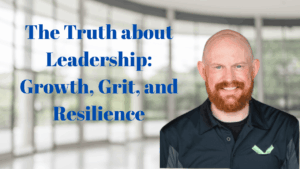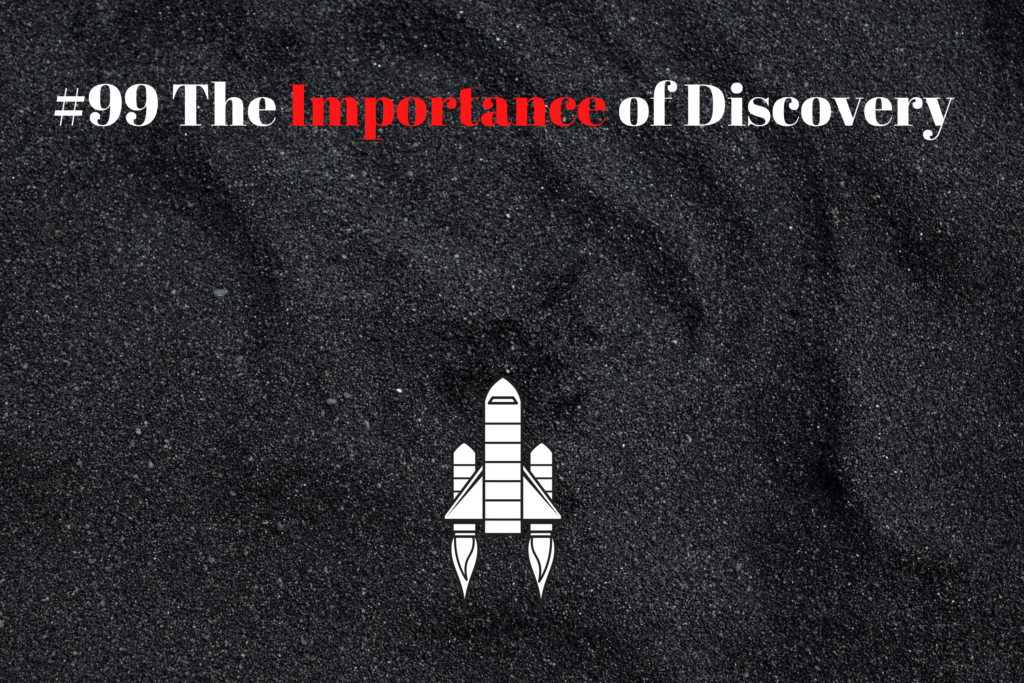
In order to deliver the best demo, the best presentation, the best value to any customer/prospect, you have to know what they want. The way to find out what they want is through a process called Discovery. Today’s show welcomes back Chris White, author, leader, consultant and coach, to explain his views on discovery: what it is, how to do it well, and why it’s important.
There’s something for everyone in this show no matter your experience level. Enjoy!
Reading is Power – the more you read, the more you discover, the more you learn about different perspectives that will broaden your own.
Definition of Discovery:
- Try to understand the business needs of the customer and try to figure out if there is anything you can show to help and guide them in the right direction.”
- Ultimately it comes down to: “Having the opportunity to determine what it is you need to say, show and/or do to get the technical win.
Sometimes you are going to have to do your own discovery – you have the knowledge your Account Executive/Manager(AE/M) does not that will be helpful for delivering a better demo.
Use your experience to ask the right questions. Work with your AE/M to ensure you are in alignment with the requirements of a successful discovery. If there are multiple stakeholders who have to be involved, or if there will be multiple discovery calls with multiple teams, make sure expectations are set with everyone involved so that customers don’t get annoyed with having what seems like the same conversation multiple times.
Remember, prospects don’t like to be blindfolded – tell them what to expect and why they should expect it.
If there is not a culture of SEs taking part in the discovery, show your AE/M the value and reasoning why there should be.
- “Help me (the SE) help you (the account manager) help the customer/prospect better,”
Consider the emotions that can drive you to be better – pride, humility or others – always recognize what could have been done better and take steps to do better in discovery with your colleagues in the future. Never get angry, always approach improvement in a constructive way.
- Why assume when you can know – so ask.
Pick up the phone! When it comes to the best medium for discovery, email is not a favorite. Pick up the phone and speak to your prospect – discovery is too important to leave the potential for nuances to be lost in email. If they’re not willing to spend 30 mins on the phone with the person delivering the demonstration, they aren’t going to be willing to spend thousands of dollars with you.
How do you avoid “Solutioning on the First Date”?
- Stay focused on the purpose of the meeting – remember that the nuances of every deal will alter what the final solution will look like, but you don’t need to show off that final solution right away. If the customer is asking you to solution on the spot, consider how much they need to know on the spot vs. what can be conveyed in a future call. You only have one opportunity to make a first impression, don’t waste it.
Things to look out for during technical discovery:
- Is there real interest or are they just kicking tires (seeing what’s out there with no real intention to buy)?
- When you’re selling software, you’re typically selling one of two things, sometimes both:
- Products and Concepts
- If the field that you’re in is an emerging one, or if there isn’t the clearest understanding of the space you’re in, you may need to sell the concept of what you’re selling before you show off the product that achieves the desired goal.
- If the concept is understood, then show off why your solution is best.
Not So Fire Round:
- What do you love about your job right now?
- Chris has just begun a Sales Engineering Coaching and Consulting Practice.
- Loves working with people, working through challenges and issues, seeing progress and excitement is extremely rewarding and satisfying.
- What is something you’d change about this role?
- It took longer than he expected to get to this point however, every step he took, and the time it took to take each step contributed to everything he knows now.
- Books, Resources, and Tools Chris Recommends:
- The Speed of Trust by Stephen M.R. Covey
- Instant Influence by Michael Pantalon
- What Separates the Great SEs from the Rest?
- Those that follow the 6 Habits.
- Within the context of Discovery though:
- Enter each conversation you engage in with the goal in mind of what’s required to get the technical win.
- Have the motive to support the prospect/customer in making the best decision hey can.
- Ask open-ended and clarifying questions in a conversational way.
Bonus Point: If you’ve read “Never Split The Difference” by Chris Voss and Tahl Raz, you know the win that’s achieved by hearing “that’s right” from the other side. Similarly for discovery in demos, hearing “that’s right” or “exactly” in response to your clarification is just as good. Also, if you haven’t read “Never Split The Difference”, you absolutely should.
Some more links from the show:



